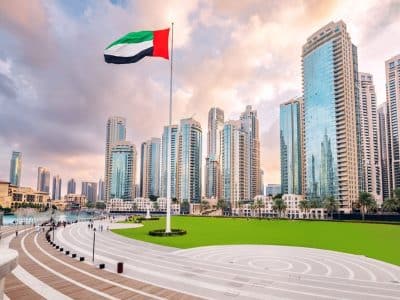The failure of some state-linked firms to manage their finances “in a proper manner” was a key trigger behind the Dubai debt crisis, the CEO of Daman Investments said Monday.
Government-related-entities (GREs) were left badly exposed to the financial crisis thanks to a culture of support for over-leverage, Shehab Gargash told the 5th Arabian Business Forum.
“It is very simple. Over-leverage caused the crisis worldwide. That over-leverage mentality was endorsed by some sectors of the economy… government is one and also quasi-government companies as well, it’s no big secret,” he told delegates.
“They basically did not manage their finances in a proper manner, which had an impact [and] being a big borrower it had more of an impact than usual.”
[Click here for pictures from the forum]
Dubai has been in the spotlight over its debt woes since late-2009, as it has struggled to rebuild investor confidence after state-owned Dubai World announced a $26bn restructuring.
The emirate’s GREs will see nearly $14bn in debt mature in 2012, but are expected to be able to pay down or refinance their debts with relative ease, JP Morgan said in October.
Economic zone Jebel Ali Free Zone and Dubai International Financial Centre Investments (DIFCI) have $1.25bn and $2bn respectively in debts maturing next year.
Gargash, a keynote speaker at Monday’s forum, said lessons still needed to be learned from the global financial debacle and the overreliance on debt.
“Worldwide it has not been rectified,” he said. “It is a matter of cleaning up and mopping up and reorganizing – the whole Dubai World saga is just an example.
“The issue of over-leveraged entities reorganizing themselves and chartering their way forward is still an unresolved issue.”
After racking up losses from real estate and investment loans during the crisis, banks in the UAE clamped credit lines leaving some companies struggling to raise finance.
Bad loans are likely to peak at around 13-15 percent in Dubai in 2012, as banks continue to feel the effect of large distressed government-related issuer (GRI) exposures, rating agency Moody’s said last week.
Gargash said banks had gone too far in restricting lending and had stifled recovery, and urged the UAE Central Bank to take a more active role in ramping up lending.
“I believe the banks overprotected themselves during the crisis; that is a fairly well known conclusion that many people have come to. The big issue is the Central Bank didn’t do enough to nudge he banks into an active role,” he said.
“The Central Bank by definition has always been erring on the side of caution, which is not a bad viewpoint… [but] ultimately, it is the Central Bank that is going to spur the banks to get a little bit more liberal in their activities.”








